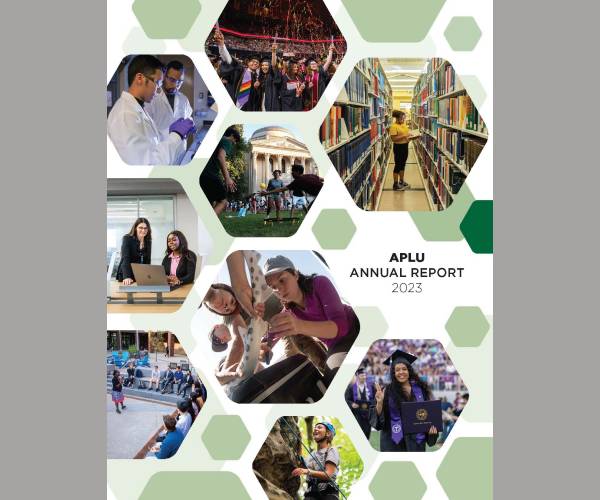- Drawing on the experience of students, faculty, and public university administrators at five public urban universities during the pandemic, APLU and Coalition of Urban Serving Universities (USU) released a report examining the magnitude of the pandemic’s impact on food insecurity on college students and outlining steps institutions can take to better address food insecurity.
- The report provides nine action steps to address the challenge.
- The study identifies some innovative food security practices on campuses, piloted before the start of the pandemic.
According to the Hope Center for College, Community, and Justice, 41 percent of college students (at two- and four-year institutions) experienced food insecurity within the preceding month. A separate survey found Black and Latinx households reported experiencing food insecurity at higher rates than white households (41 percent and 37 percent, respectively; compared to 23 percent) between April and June 2020.
The report provides nine action steps to address the challenge. They are:
- Increasing awareness about food insecurity on campus to destigmatize seeking help;
- Elevating the historical and societal root causes of food insecurity;
- Demystifying who the typical food insecure student is;
- Inculcating a campus expectation for everyone to play a role in addressing food insecurity;
- Assessing the impact of food insecurity on student success;
- Partnering with community stakeholders to address the issue;
- Advancing a comprehensive food security strategy that considers nutrition and food preparation education;
- Providing integrated student support for basic needs, and;
- Advancing public policy alleviating the issue.
The study identifies some innovative food security practices on campuses, piloted before the start of the pandemic. The University at Albany opened a food pantry in partnership with its local food bank and community pantries to provide over 50,000 meals. The University of Toledo partnered with its food service provider to recover unused food from campus-catered events, redirecting more than 12,000 pounds of food to food-insecure students. And the University of Washington-Tacoma launched a student-led research project to examine cultural and ethnic diet preferences to better align them with the multi-ethnic and multicultural community it serves.
After the pandemic hit, the universities turned to partners, new and old, to help mitigate food access barriers for campus stakeholders. Securing off-site pick-up of pre-bagged pantry items at local organizations, partnering with community banks to fund meal provision, and food drives in partnership with local churches are just a few examples of what participating universities accomplished in the first months following the pandemic-induced campus depopulation. The Kresge Foundation funded the project.
The institutions that participated in the project are: University at Albany, Morgan State University, University of New Orleans, University of Toledo, and the University of Washington-Tacoma. The report’s findings are based on interviews, focus groups, and surveys of nearly 300 students, faculty, and staff from March to December 2020. The Kresge Foundation funded the project.




Stay Connected
X (formerly Twitter)
Facebook
YouTube
LinkedIn
RSS